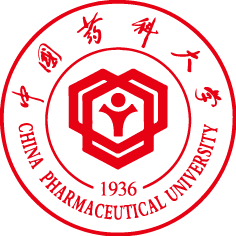 801-900
801-900 


China Pharmaceutical University (CPU), one of the ¡°211 project¡± key universities affiliated to the Ministry of Education of China and one of the nation¡¯s earliest universities authorized to confer doctoral and master¡¯s degrees, has been known for its long history, specialization in pharmaceutical sciences and academic integrity. Founded in 1936 asChina¡¯s first independent four-year National College of Pharmacy, the university integrated the pharmacy schools from Qilu University and Soochow University in 1952 for the establishment of East China College of Pharmacy. It began to accept postgraduate students in 1955. It got the name of Nanjing College of Pharmacy in 1956. In 1986, the current China Pharmaceutical University was established on the basis of the former Nanjing College of Pharmacy and the then newly established Nanjing College of Traditional Chinese Pharmacy. As one of the ¡°211 project¡± key universities ofChinasince 1996, CPU became one of the universities directly affiliated to the Ministry of Education ofChinain 2000, and became one of the ¡°985 Innovation Platforms for Priority Disciplines¡± ofChinain 2011. Located in Nanjing, CPU is composed of two campuses, namely the Xuanwumen Campus and the Jiangning Campus, which cover a total area of about 2200 mu (146.6 hectares) and a total construction area of over 500,000 square meters to host its 15055 full-time students. CPU consists of 11 schools and independent departments: School of Pharmacy, School of Traditional Chinese Pharmacy, School of Life Science and Technology, School of International Pharmaceutical Business, School of Science, School of Engineering, Department of Foreign Languages, Department of Social Sciences, School of Continuing Education, Department of Physical Education, and Higher Vocational School of Pharmacy. CPU offers 24 bachelor¡¯s degree programs, 5 associate programs, 37 research-oriented master¡¯s degree programs, 3 professional degree programs at the master¡¯s level (pharmacy, traditional Chinese pharmacy, pharmaceutical engineering), 24 doctoral programs with 23 being open to post-doctoral research scholars under the two first-level disciplines of Pharmacy and Traditional Chinese Pharmacy. The Secretariat Office of the National Education Committee of Professional Degrees of Pharmacy at the Master¡¯s Level is in China Pharmaceutical University. It has intercollegiate academic exchange agreements with 30 universities and research institutions. Over the past 79 years since its establishment, the university has been sticking to the motto of ¡°Dedicated to Academic Excellence and Devoted to Public Health¡± under the guiding principle of being ¡°strict, practical, creative and cooperative.¡± As a pharmaceutical university, CPU adopts the fundamental strategy of ¡°Beyond Pharmacy, Around Pharmacy and For Pharmacy¡±. Throughout the years, particularly during China¡¯s current 12th Five-Year Plan, CPU has been following the idea of scientific development, and has been trying to adhere to the higher educational guidelines set by the Communist Party of China in further improving its quality as a pharmacy-featured university. CPU is trying to take all the opportunities with pioneering efforts in developing itself into a pharmacy-based multiple-disciplinary university well-known for its academic impact in the world with a coordinated development of science, engineering, economics, management and the humanities, and to maintain its leading position in the fields of student cultivation, scientific research and social service with greater contribution to the important undertakings of public health in China. The 21st Century sees the rapid development of life sciences and pharmaceutical sciences, which brings the pharmaceutical industry into a new era with new challenges to higher pharmaceutical education. In its 100-year blueprint, CPU aims to develop itself into a world-famous, research-oriented and pharmacy-based multiple-disciplinary university with a coordinated development of science, engineering, economics, management and the humanities.
 801-900
801-900 
| Subject | Rank |
|---|---|
Pharmacy & Pharmaceutical Sciences | 16 |
Biomedical Engineering | 101-150 |
Nanoscience & Nanotechnology | 151-200 |
Chemistry | 301-400 |
Materials Science & Engineering | 301-400 |
Biotechnology | 401-500 |